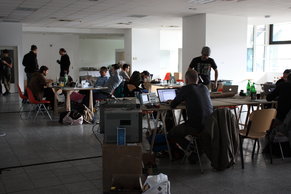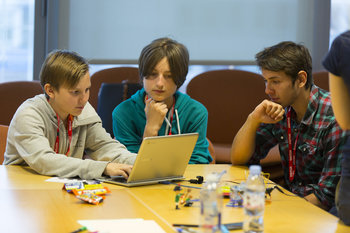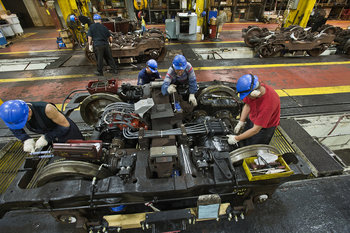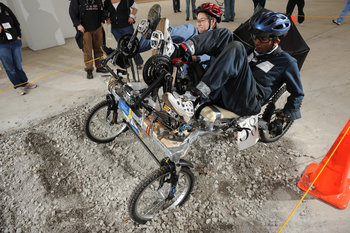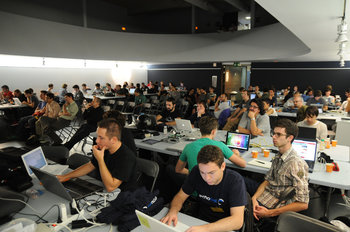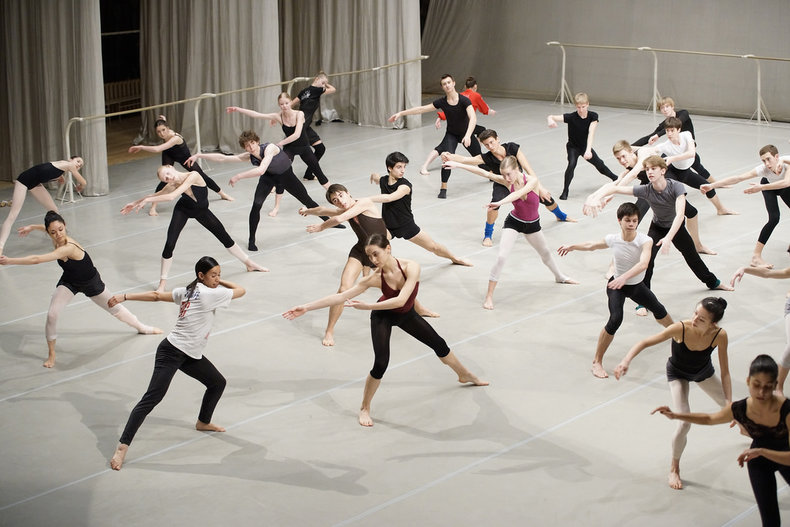
Self-Discipline
Self-discipline is the ability to do what is required to reach a goal even if you don't feel particularly motivated. This is associated with an ability to concentrate on things you feel are uninteresting to learn or complete work. Self-discipline also implies you can control your emotion to act in a way that is productive as opposed to acting out based on your emotional state. Self-discipline can be cultivated with time with practice.Personal Resilience
Personal resilience is an advanced form of self-discipline that allows an individual to do what is required to achieve a goal in the face of obstacles and stress. For example, a customer service representative who is able to maintain their professional composure when dealing with a customer who is angry.Habit
Habit is a regular routine or tendency. These can be used to establish discipline such as a student who simply gets in the habit of focusing on homework as soon as they get home to free up the rest of their evening. Discipline is also required to break a bad habit.Positive Discipline
Positive discipline is disciplinary action that provides a reward for disciplined behavior. For example, a manager who gives a large bonus to an employee who always delivers high quality work. Positive discipline is also commonly used by parents with children such as a parent who lets a child play video games when they complete their homework.Negative Discipline
Negative discipline is a disciplinary action that invokes a penalty for undisciplined behavior. For example, a parent who takes away a favorite toy for a week when a child hits their sibling. In an organizational context, negative discipline includes actions such as poor performance reviews, verbal warnings, written warnings and termination of employment.Sidelining
Sidelining is a social strategy that involves ignoring or failing to include someone. This is occasionally used as a disciplinary action, particularly when you have little authority over an undisciplined individual. For example, a customer who stops going to a restaurant that always gets their order wrong or a manager who stops requesting any work from an individual who never delivers.Natural Consequences
Natural consequences is a disciplinary approach that fails to protect an individual from the natural results of their undisciplined behavior. This implies you have a protective role such as a parent of a child. For example, a parent who warns a child they will break a favorite toy if they aren't gentle with it who then refuses to replace the toy when the child throws it down a flight of stairs. Natural consequences can also be applied in an organizational context such as a manager who refuses to protect a member of their team after they start foolish political battles with stronger adversaries.Rules
Rules are commonly used as disciplinary mechanisms whereby you state expected behavior and then penalize anyone who violates these expectations. This can be viewed as a forced type of discipline. Rules don't typically encourage individuals to develop self-discipline and personal resilience. They can also backfire as individuals may act out in an emotional way against rules. For example, most individuals will strongly challenge attempts to limit their freedom with an emotional response known as reactance.Culture
Culture can include expectations, norms and standards that are enforced by flexible social processes as opposed to systems of inflexible rules. For example, a norm that you be on time for meetings unless you have a good reason to be late. This respects the intelligence of the individual as opposed to a strict rule that lateness is always penalized. Culture can exist at the level of a society, city, community, group, organization and family and often acts to set expectations for diligence and penalize poor diligence with social processes such as reputation.Summary
Discipline is behavior that is controlled, directed and focused.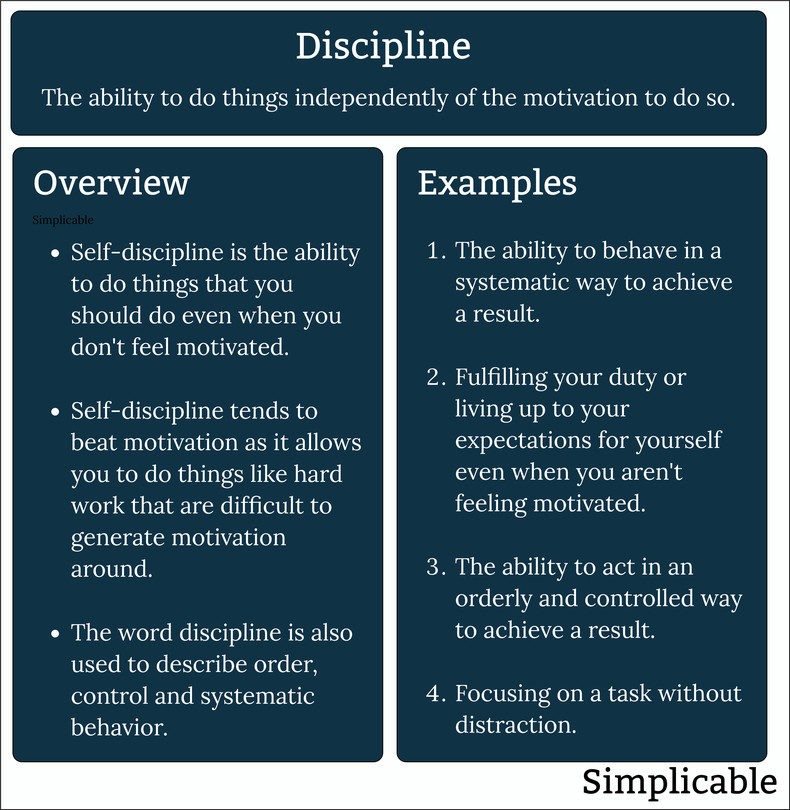
| Overview: Discipline | ||
Type | ||
Definition | The ability to concentrate on a task that you find uninteresting or to behave in a positive way despite a desire to do otherwise. | |
Related Concepts | ||





